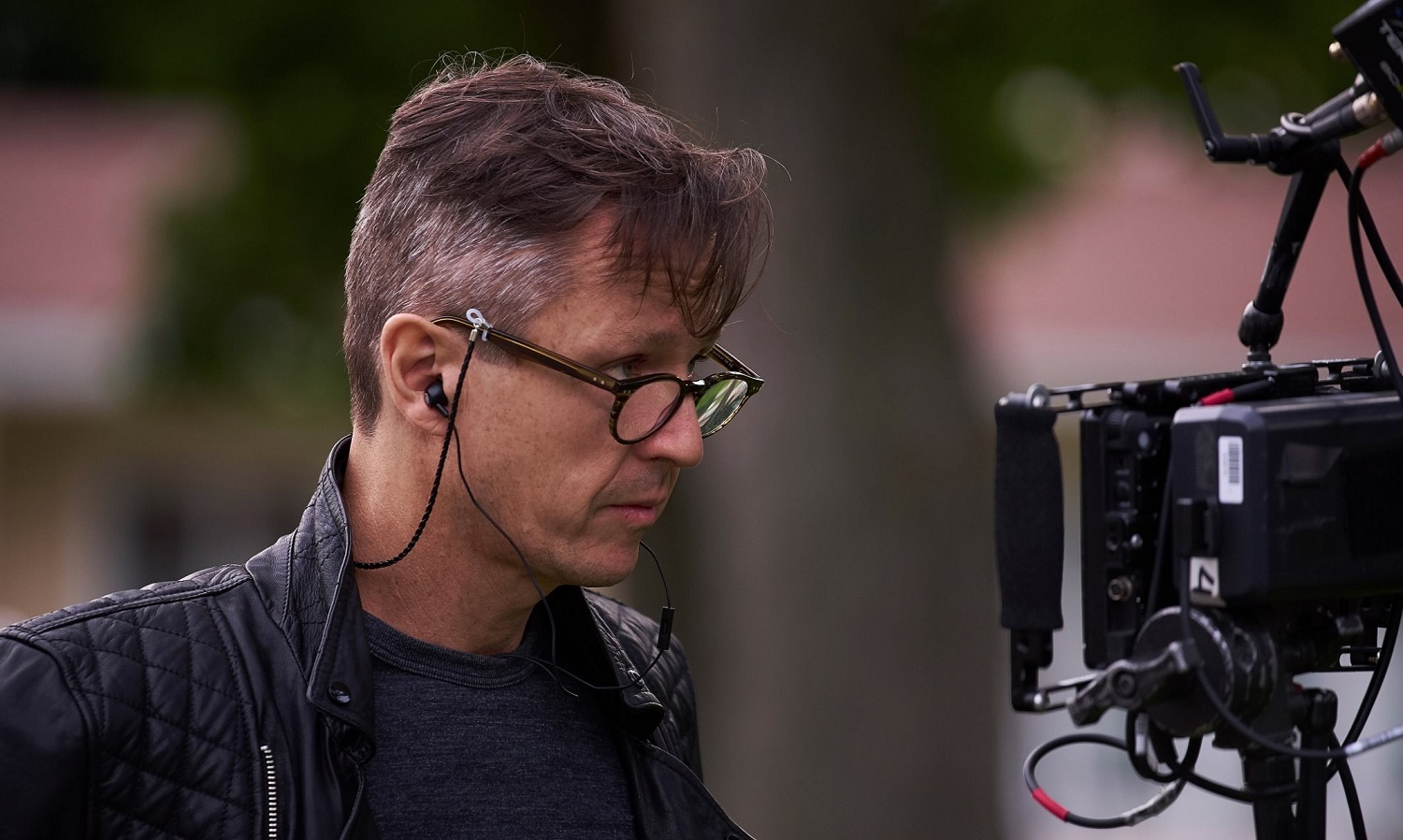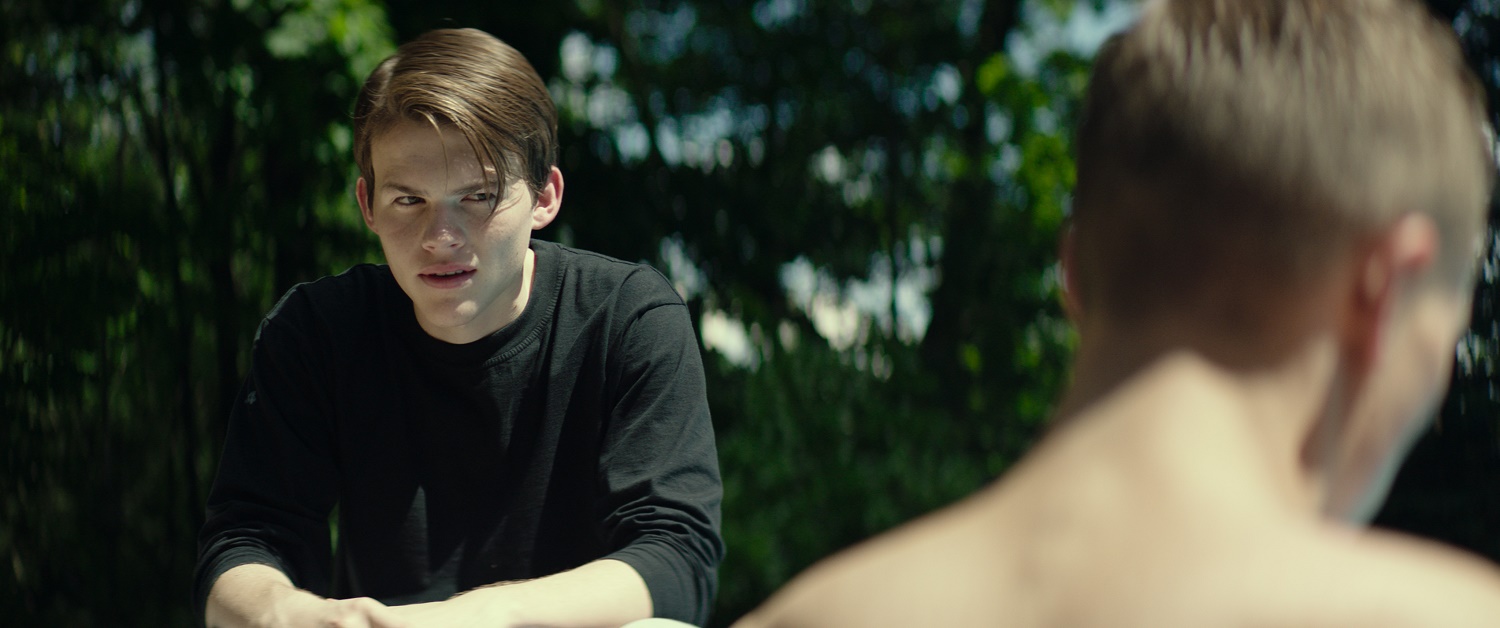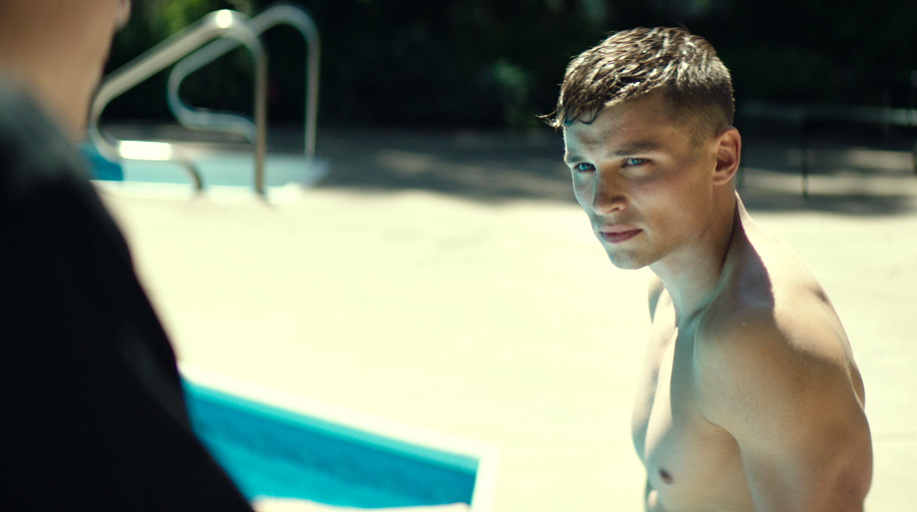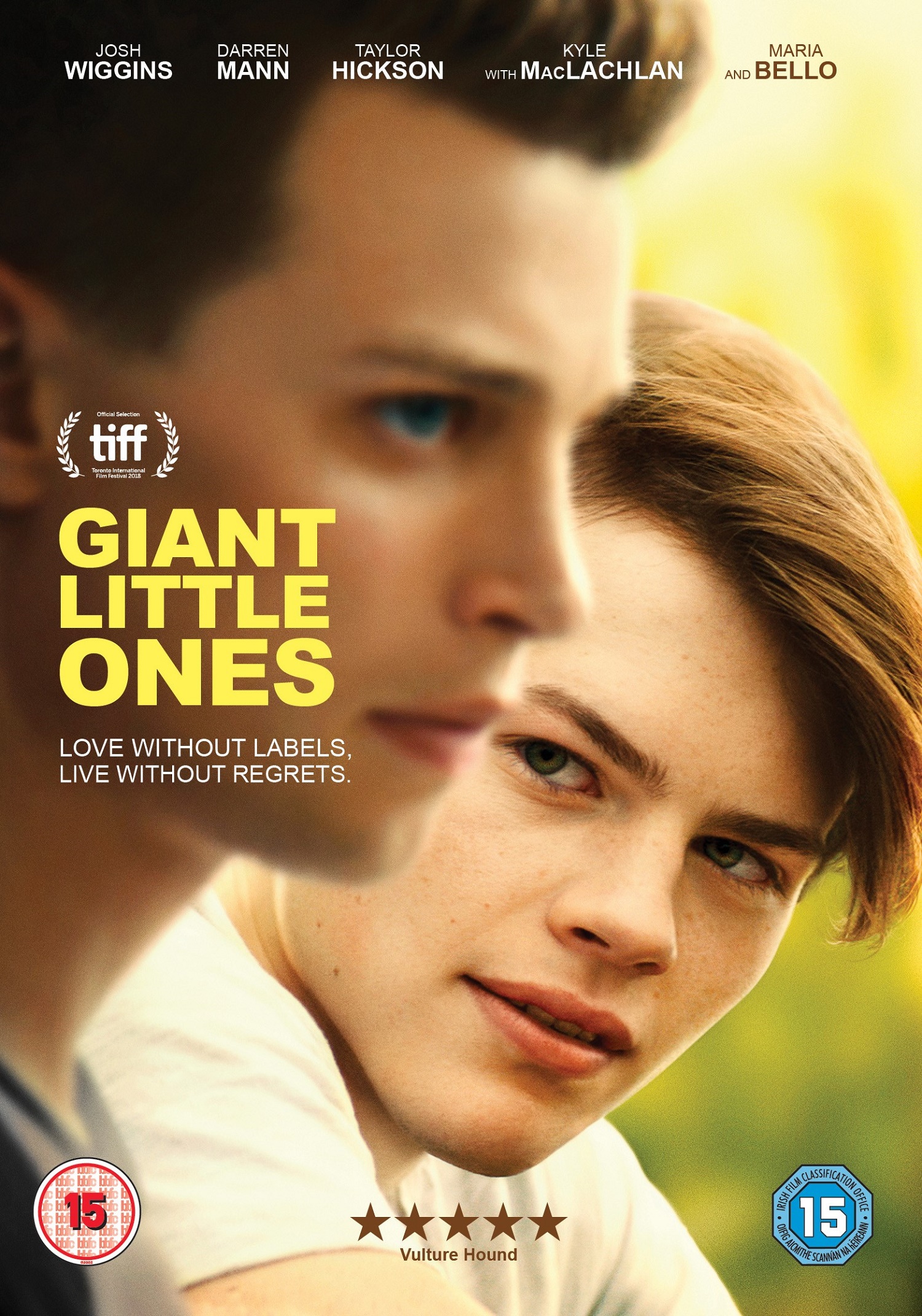Exclusive | Filmmaker Keith Behrman on showing the complexities of desire in his latest film ‘Giant Little Ones’
The teen drama will be available to download from February 3 and on DVD from February 10
By Steve Brown
Words: Steve Brown
Arpund 15 years after making his debut feature-length film, director and screenwriter Keith Behrman is back with a brand new, teen drama Giant Little Ones.
Starring Kyle MacLachlan, Mario Bello, Josh Wiggins and Darren Mann, the film follows best friends Franky Winter (Wiggins) and Ballas Kohl (Mann) who have a perfect teenage life – until the night of Franky’s epic 17th birthday party when Franky and Ballas are involved in an unexpected incident that changes their lives forever.
Although the film – which will be download from February 3 and on DVD from February 10 – focuses around the friendship and relationship between the two teenage characters, the film also deals with topics of sexuality, identity and parent/child relationships.
Attitude caught up with director and screenwriter Keith Behrman who explains how he wanted to make something ‘contrary to what expectations were’.

Keith Behrman
I absolutely loved Giant Little Ones, it was one of the more realistic teen movies I have seen for a while. What was your main inspiration behind the film?
It all began when I was finishing a long period of studying and practicing mediation. I took many years off and delved into mediation and yoga and I was doing retreats.
At the end of my last long retreat, I had a dream about a teenage boy in the kitchen talking to his mother.
The dream really captured my attention and so, when I finished that retreat, I started writing Alex and about that dream and it just kept evolving until it got to the point when I realised there was a story and I decided I would make another film.
And I just followed the breadcrumbs and continued writing and the more I wrote, eventually this particular story emerged. Around that same time, there was a rash of teenagers in Canada who had killed themselves because of the treatment they were getting at high school.
I talked to my friend about that and I think it planted the seed as well which eventually came to fruition.
I knew I didn’t want to make a film about high school kids killing themselves, but the stories I was reading had an impact on me and I wanted to make something that dealt with that topic but did so with an inspiring positive note.
It did have that positivity as well as being realistic take on it. You said that it tackles different topics – questioning sexuality, divorce, potential trans character, parent/child relationships – when you were writing it did these all fit in?
Yeah, a lot of people have talked about that. Most people comment on how it works in a seamless way.
But I don’t sit down and think about what kind of stories I want to tell before writing, I just start writing and they emerge and become clear to me along the way.
I didn’t particularly plan to write these kinds of storylines and these characters just popped up. It didn’t feel like it was particularly difficult thing to weave together these different storylines.
I tend to forget about what I did a couple of years ago, I cant really remember the process. I spend a lot of time fine tuning the script.
It just sort of ran in a natural way. I think I just like a lot of layers.
You say you like layers and in this film all the different characters are well-layered. The all sort of deserve their own separate film. Could that be a future project?
I wanted all the characters to feel like they were important characters in themselves.
Even the minor characters, I wanted them all to feel like they were their own character. I wanted them all to have some sort of humanity.
I made sure I wasn’t writing token characters. But I don’t feel particularly inspired to go back and build on their stories but you never know what will happen or what shows up.
The film wasn’t really a romance movie but it focused more on the friendship between Frankie and Ballas. It was them two coming to terms with their friendship and what that means. Is that something you relate to?
Yeah, I think there are a lot of ways to relate to this film. There is obviously the aspect of sexual identity, and then a lot of people see this film and it reflects an experience they had.
From one side, they talk to me and say they had a sexual experience and then it’s a level of friendship.
We have all had good friendships and friends that we have lost. We’ve all had to navigate being true to ourselves and I think there’s many aspects as to why I think people find it so relatable.

When I found out who initially instigated the sexual act, I was quite shocked and didn’t see it coming. But looking back, the signs were all there. Did you know that’s how it was going to be?
I did want to do something that was contrary to what expectations were. I wanted to show the complexity of desire and the complexity of sexuality.
So, it was interesting to switch expectations and not have the more sensitive or emotionally evolved, more open person to initiate it but have it be the more guarded and more fragmented.
I wanted that contrast of expectations because we have ways of perceiving each other and ourselves and all these labels, boxes and expectations around types of people was something that I wanted to subvert in various ways.
Not only decide that it’s these two guys that identify as straight and then have a same-sex experience and then have to struggle with labels around that but also types and personality.
We are so busy putting people into boxes, I think that’s kind of one of the most harmful things we can do.
One of the lines that really stuck out for me was Kyle says to ‘focus on who you are drawn to, not the label you identify with’. That was a really powerful line. How did that line come about?
I was writing it and it came to me. I didn’t consciously think about it. That’s the basic sort of message of the film. I hope that’s what people take from the film.
To be in touch about what we feel and what we are interested in or curious about, not just in regards of sexuality, but all aspects of our life.
People are so fragmented, we’re so hedged in by what society expects from us, all these parts of us that we don’t allow, it can be something so mundane such as the clothes we wear, even in terms of what colours we wear, how we walk.
That captivity of expectations and fitting in is really the thing that I wanted to address.
I guess because I am so interested in that and I am so inspired to bring inspiration to help people connect with who they really are and how they feel and what excites them, all areas of our lives.
That was the thing that drives me and that line was a statement of my passion.

Is that why you decided to set it in high school at a time where everyone wants to fit in?
I think fitting in happens at all ages. Most people are doing that most of the time. Even an adult is doing it for most of the time. Because the film is about teenagers most of their lives and interactions take place at school, it made sense to set it there.
The cast were all phenomenal. How was the shooting process?
It was great. We had a lot of fun. A lot of people who worked on the film said it was their best experience working on a film. There was just a lot of positive energy.
They could see we had put a lot of care and attention into the film to make the script just right, make the production experience right. I think everyone had a lot of fun and I think they felt it was a meaningful film to work on and there was a real purpose behind it.
I think people crave that, they crave to do meaningful stuff, stuff that has a lot of integrity to it. It was a really wonderful experience.
Kyle plays a gay character but identifies as straight. There is an ongoing discussion about gay actors playing gay roles, but while watching the film, it isn’t actually about his sexuality but more his relationship with his son. Was Kyle always in mind?
No I didn’t. I didn’t write any of the roles with a particular actor in mind. I tend to just write and when it comes to get the production together, then I start thinking about actors.
We came into contact with Kyle through his agent, and he read the script and really enjoyed it, he thought it had a lot to offer. I spoke to him on the phone and after he pretty much agreed to do it afterwards.

This is your first feature length film in 15 years. Why did you have a long break away from movies?
After my first feature, I did some work in TV for a few years and then I just became interested in editing and then I got involved in meditation and yoga and spent years doing that.
I didn’t feel I had another story that I was interested or worth putting out there.
Giant Little Ones has been internationally praised since it’s release. How did that feel winning the awards and accolades?
It felt great to premiere the film at Toronto Film Festival because that’s where all my other films have premiered as well.
So it was nice to be there and celebrate with everyone. I’m really happy that the film is meaningful and that people have related to it and has made an impact on them. It feels good to make a film that has something to it.
Giant Little Ones will be available to download from February 3 and on DVD from February 10.
